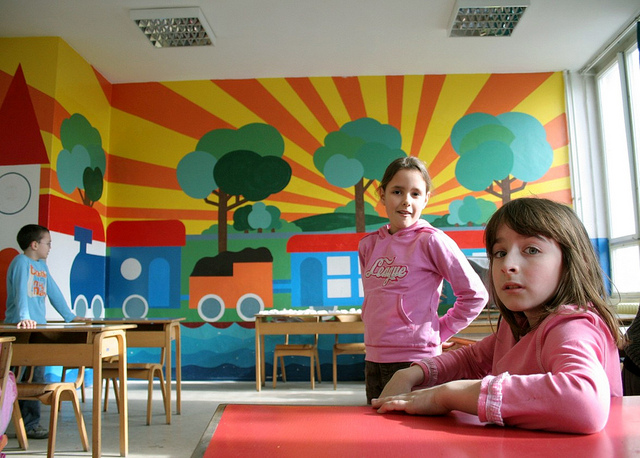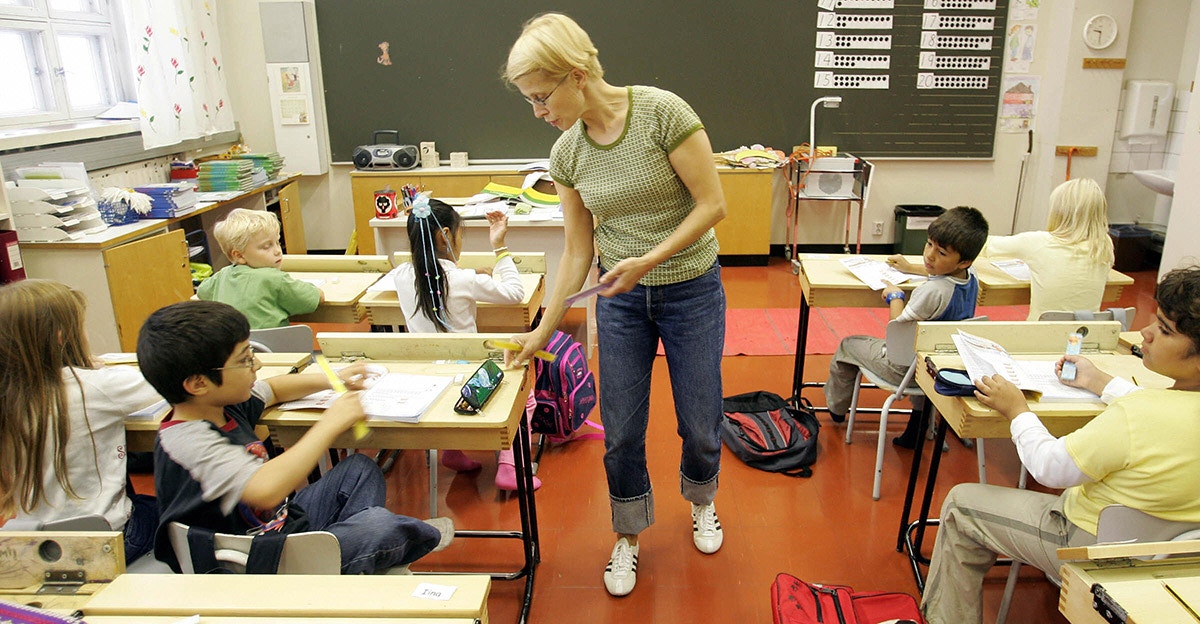EDUCATION
Finland’s education system gives us all a lesson into the essence of creative pedagogy, the significance of child-centric education and the revival of teaching as a vocation. For a nation like India confronted with large scale structural concerns, a few lessons from Finland will be fruitful.
Priyanka Yadav | The New Leam
[dropcap]F[/dropcap]inland tops the ranking of the global education system leaving behind countries like USA and United Kingdom, in times when countries like China and India struggle to strengthen even their basic educational infrastructure both at the primary and the secondary levels.
Finland acquires this ranking with its no banding system- which is based on the model of inclusive learning, where every child regardless of being weak or strong studies in an inclusive classroom. Children do not enter formal learning until the age of seven and before that they are allowed and encouraged to participate in sports, games or leisure.

Finnish educators believe in mantras like “Let children be children,” “The work of a child is to play,” and “Children learn best through play.”
This is very unlike the Indian experience where playing and games are considered as extracurricular activities and thus are not a priority. Learning while playing as an educational pedagogy has still not been understood and hence not yet adopted in its real essence. Here the prime focus from the very beginning remains on academics, rote learning and securing good marks within a grading system which evaluates the child’s academic performance only.
Making Finland’s Schools Different
Finland does not follow evaluation system based on any kind of formative and summative examination every week or every semester it rather does the evaluation every day. They do not adopt a pen-paper mode of evaluation rather their evaluation is based on observation, participation, activities, puzzles, quizzes by the teachers. Finland is full of teachers who attend to each child carefully and at the age of 16, every student of Finland has to take a mandatory test. As compared to countries like India the student-teacher ratio is quite balanced in Finland.
Despite the test, the focus is never to make the student score well in the exam, it is rather to ensure that the child has been able to learn or grasp all that was taught in the classroom or otherwise. If at all there is a sense that the child is unable to cope up with the curriculum, he is provided with personal assistance till the time his learning abilities are groomed properly. This is quite contradictory to developing countries like India where generally the student-teacher ratio is exceptionally high, be it at the elementary level or the higher secondary, and thus in a model like this it becomes equally difficult to ensure that learning becomes the output of teaching.
Finland topped the Programme for International Student Assessment Test in 2015, which is a platform to assess the learning abilities of the child, it is a test in science, mathematics and reading, wherein the application of received knowledge of the child is tested, and Finland’s performance in the test makes it amply clear that their teaching-learning system ensures a healthy environment of effective teaching.

How are Finnish teachers unique?
Any adult who has a Master’s degree with specialisation in classroom practice and teaching can be teacher, a position which only 10 per cent of the graduates are able to acquire, teaching as a profession is quite well received in Finland and hence teachers are remunerated well there.
Every teacher in Finland plays the role of a catalyst in a child’s overall development be it personal or professional. Teachers understand the uniqueness of every child and hence do not discriminate between a weak and a strong student. Their agenda is to help the child learn and grow through his/her experience in which the teacher is an aid, they help the weak in becoming strong or learn what they are not able to learn, through personalised assistance, which creates a huge impetus in the child’s learning abilities.
Education is state funded in Finland and there is a universal curriculum followed all over the country, in every school of Finland, which helps in creating a difference free environment. Education policy is the domain of the educators hence politicians and bureaucrats are kept away from it and therefore they are not allowed to intermingle with the activities of the school or the education department.
India has a model strikingly opposite to this wherein education actually becomes the monopoly of the politicians, where they acquire undue authority to monopolise the domain without having enough expertise or any expert advice, education rather functions on the whims and fancies of the state authorities. Education is an important tool of humanity, to which all the solutions of many of the pertinent problems of the society are directed.
Plato believed that a child’s mind is like a clay, with the capacity to get moulded as per the environment, teaching, knowledge and surroundings in which the child lives and thus it is important to have a meticulous focus on what the child learns and how, it isn’t necessary to train the child to acquire positions or compete irrationally without knowing their strength’s or weakness, rather it is important to understand what the child is interested in and further guide him/her to achieve their desired interest or sometimes make them aware of these interests through methods of effective teaching.
Surely, the value that Finland gives to its school education is commendable. The manner in which school teachers are bestowed with a sense of self-respect and teaching as a vocation is seen at par with other professions in Finland creates an ecosystem where young people are encouraged to opt for the vocation of teaching.
The manner in which each student is attended to and enabled towards the path of excellence also gives us all a lesson into a nuanced critical pedagogy that priorities learning over memorisation, child centric teaching over politicization of curriculum and the sustenance of an environment where education becomes a meaningful endeavor for societal growth.










